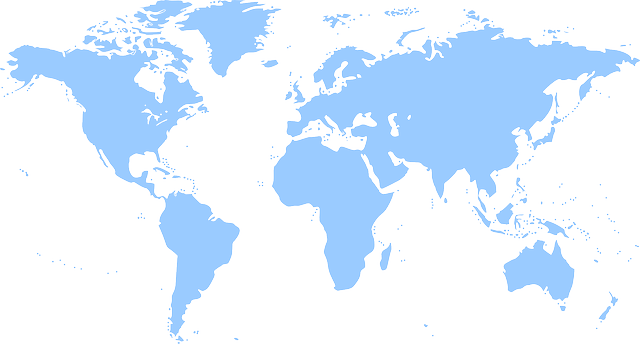Blog
Should You Consider a Career in Web Design?
A career in web design is a fantastic option for those who wish to enter a field with high-paying and stable job prospects. More people than ever before are working from home, and web designers are more important than ever to design the websites we all rely on each and every day. Read on to find out whether a web design career is right for you.
Overview of Web Design
Web design is the practice of how a website is laid out for users. Whenever you visit a website, you experience the work of the web designer behind the site—whether you think about it or not. Web design includes the images, colors, font, and overall presentation of the site that ideally makes the site easier to use for visitors. Everything you see and read in this article was created through web design. Remember that a web designer is different from a web developer, who is responsible for more of the behind-the-scenes parts of websites.
Web designers have many responsibilities, which include the following:
- Designing website layouts and navigation tools
- Designing and producing graphics, images and videos
- Designing functional interfaces for users to experience
- Maintaining site compatibility with various devices such as tablets and smartphones
- Ensuring websites stay updated and accurate
There are three main types of web designers. Responsibilities and job scope will vary for individual web design positions.
- User Experience (UX) Designer: creates the overall hierarchy of the site, including wireframes and prototypes
- Visual Designer: creates the style guide of the site, which includes colors, fonts, and paragraph styles
- Interaction Designer: creates user interfaces, including hover menus and buttons
A Brief History of Web Design
Let’s look at a brief history of the field of web design before diving into the pros and cons.
 The history of web design really begins with the first website ever created, in November 1992, called CERN. As you can see, the website is entirely text-based and does not contain any images, videos, or gifs.
The history of web design really begins with the first website ever created, in November 1992, called CERN. As you can see, the website is entirely text-based and does not contain any images, videos, or gifs.
By the end of 1994, there were 10,000 public websites. Designers began incorporating images, videos, and advertisements onto web pages, which changed the user experience drastically from a text-based approach.
In the years following, designers began to support websites that utilized online shopping, live animation, blogging, social media and more. One of the most popular websites ever created, Facebook, utilized a very simple design when it was founded in 2006 and has since undergone various design changes to meet user needs and try to maintain a cutting-edge look and feel.
In 2007, the iPhone was introduced, which would go on to become one of the world’s most popular smartphones. Designers began incorporating mobile elements into sites to ensure they were compatible with iPhones.
Finally, during the COVID-19 pandemic, web designers became even more important as businesses shifted to online operations in an effort to reach national and global audiences.
Pros and Cons of a Career in Web Design
Let’s take a look at some of the upsides (and downsides) of a career in web design. On the positive side:
- Lucrative profession, with a median salary of $58K and many top designers making over $100K
- Encourages creativity and experimentation
- Wide range of types of jobs
- High demand from companies in a wide variety of industries
- Room for collaboration with other designers and developer
However, on the not-so-positive side:
- Can be challenging when working under tight deadlines
- Repetition can be draining
Ultimately, if you are interested in web design, the pros outweigh the cons.
Curriculum and Certification
Our Web Design Curriculum includes a certification supported by the Web Professionals Organization, a group founded and backed by industry members.
You may be an individual interested in learning web design, or you may be a teacher who wants to teach web design to students in your middle school or high school. Either way, we have you covered with our course and curriculum.
Skills Required to Succeed
Being creative, technically savvy and ambitious is a good recipe for succeeding in the web design field.
Our Web Design Curriculum and the built-in certifications will provide you with the hard skills, soft skills, and experience to begin your career in web design. You will also build real-world projects that you can show to potential employers as you develop your career.
In taking the course and earning the certification, you will achieve the following:
- Understanding of the basics involved in HTML5 and CSS3
- Ability to apply best practices to create websites that are accessible for users who may have different levels of impairment
- Understand the fundamental relationship between content, style and behavior
- Demonstrate how to create a website for a client based on the client’s needs and vision
- Ability to analyze, test and critically review your work and use feedback to improve
- Understand how to present a solution to a client
- Demonstrate an understanding of professional ethics and internet legal issues including privacy, copyright, and information security
- Create a portfolio that demonstrates an understanding of web development using HTML5 and CSS3
- Understand the trends in web design
- Demonstrate an understanding of color theory, site aesthetics, style tiles, wire framing and site testing
- Understand how to engage with a client, collaborate, communicate and deliver on time and on budget
These skills are fantastic for helping you build a portfolio of real-world projects that you can then show to future employers or clients.
Is a Web Design Career Right For You?
If this article has helped you understand what it is like to be a web designer, contact us today for a free demo on how we can help you. The time has never been better than now to enter this rapidly growing career field that is here to stay. Call or email our founder and lead developer, Steve Waddell, at 913-764-4272 or swaddell@ctelearning.com.
Learn more about our Web Design Curriculum , and contact us today for a free demo.
Read More:
The post Should You Consider a Career in Web Design? appeared first on CTeLearning.
Get in touch with us today!
You can book a demo directly using Calendly, call us directly at 913-764-4272 or 877-828-1216, or submit the form below and we will reach out to you.
We look forward to helping you and your students.

Most Recent Posts


About Us
Whether you are a big institution, small school or an individual seeking a new career path, our curriculum is for you.
Request a free demo of our curriculum today to see how you can help fuel our future world.
Get In Touch
PO Box 398 Olathe, KS 66051
hello@CTeLearning.com
Phone: 913-764-4272
Toll Free: 877-828-1216
Fax: 866-307-8112
Email: info@ctelearning.com
Quick Links
All Rights Reserved | Support Learning, Inc.
Web Design by Tekkii




